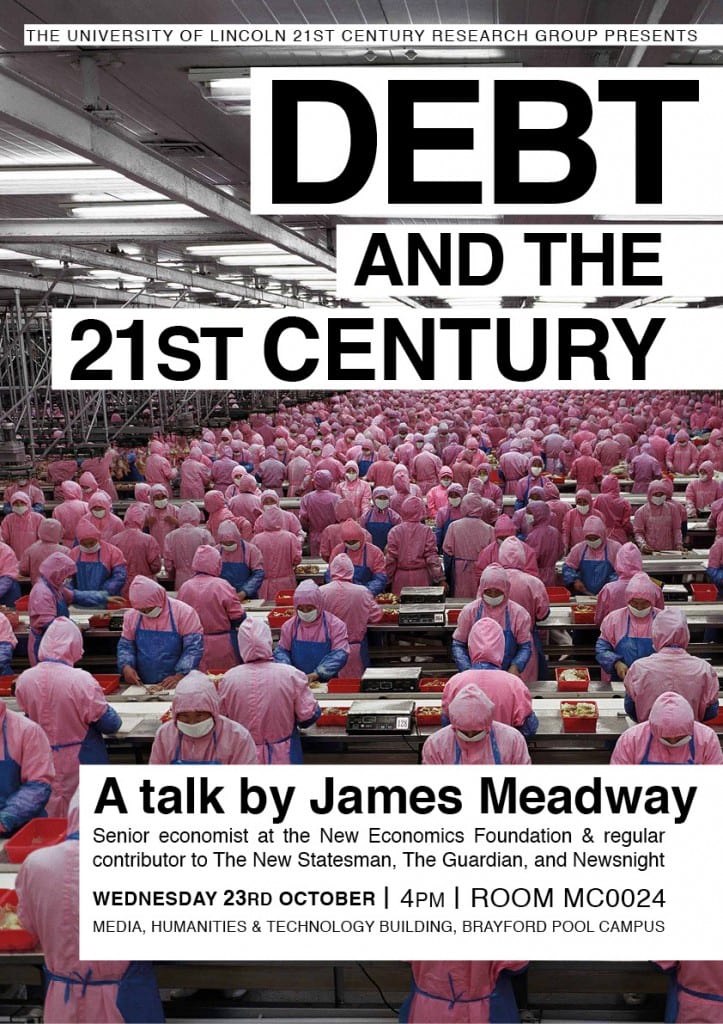Dr Ruth Charnock speaking at the next 21st Century Research Group
Wednesday 5th March, 4.15-5.30, MC0024
Dr Ruth Charnock
“I want what everyone wants”: cruel optimism in HBO’s Girls.
Since it first aired in 2011, HBO’s Girls has garnered both praise and condemnation for its portrayal of four twentysomethings negotiating relationships, careers and their friendships with each other in New York City. Whilst Girls both obviously and consciously draws points of comparison with the earlier Sex and the City, the former displays a more fraught engagement with notions of the ‘good life’, as this paper will argue. In using the term ‘the good life’, this paper draws on an existing body of work by theorists within the Chicago Feel Tank project, particularly Lauren Berlant, whilst also extending this work into a more pointed discussion of the rendering of austerity within popular cultural texts by millennials, for millennials. Sex and the City emphatically indexed designer clothes, V.I.P lounges and rent-controlled apartments as markers of the pre-recession good life. However, in Girls the very notion of the good life as a desirable and even conceivable object of fantasy is up for contest. Instead, the series interrogates the affects of austerity and is particularly interested in a specifically millennial malaise, characterised by itinerant internshipping, brutalising sex, fraying friendships and disappointed aspirations. In thinking through the series’ ambivalence towards the possibility of the good life, this paper will focus mostly on one episode from season 2, entitled ‘One Man’s Trash’ which plays out Berlant’s theorisation of disappointment and failed optimism within contemporary culture.
Debt and the 21st Century
Our first session of the new term will focus on the issue and concept of debt. We will be joined by guest speaker James Meadway, senior economist at New Economics Foundation, an independent think tank which explores economics ‘as if people and the planet mattered.’ James’s work focuses on developing responses to recession and austerity, and his thoughts on these issues frequently appear in The Guardian, The New Statesman, New Left Project, on the BBC’s Newsnight programme, and even in Ken Loach’s recent documentary Spirit of ’45 (2013).His recent publications include the collaboratively written Crisis in the Eurozone (Verso, 2012).
James’s talk, and the following discussion, is open to all interested parties, from within and beyond the University. We hope to see you on Wednesday 23rd October at 4pm, in MC0024 in the Media, Humanities and Technology building.
UPDATE: Those who are interested may wish to read this interview with David Graeber ahead of James’s talk.
Double Book Launch
The 21C Research Group was delighted, last month, to celebrate the launch of two books within English at the University of Lincoln. Dr. Siân Adiseshiah and Dr. Rupert Hildyard edited the first collection of work exclusively dedicated to twenty-first-century fiction. Entitled Twenty-First Century Fiction: What Happens Now the book is published by Palgrave MacMillan and looks set to become a canonical reference work. A second cause for celebration within English as a whole was the publication of Dr. Christopher Marlowe’s work, Performing Masculinity in English University Drama, 1598-1636 with Ashgate Press.


